Best Software To Recover Files From Hard Drive On Mac
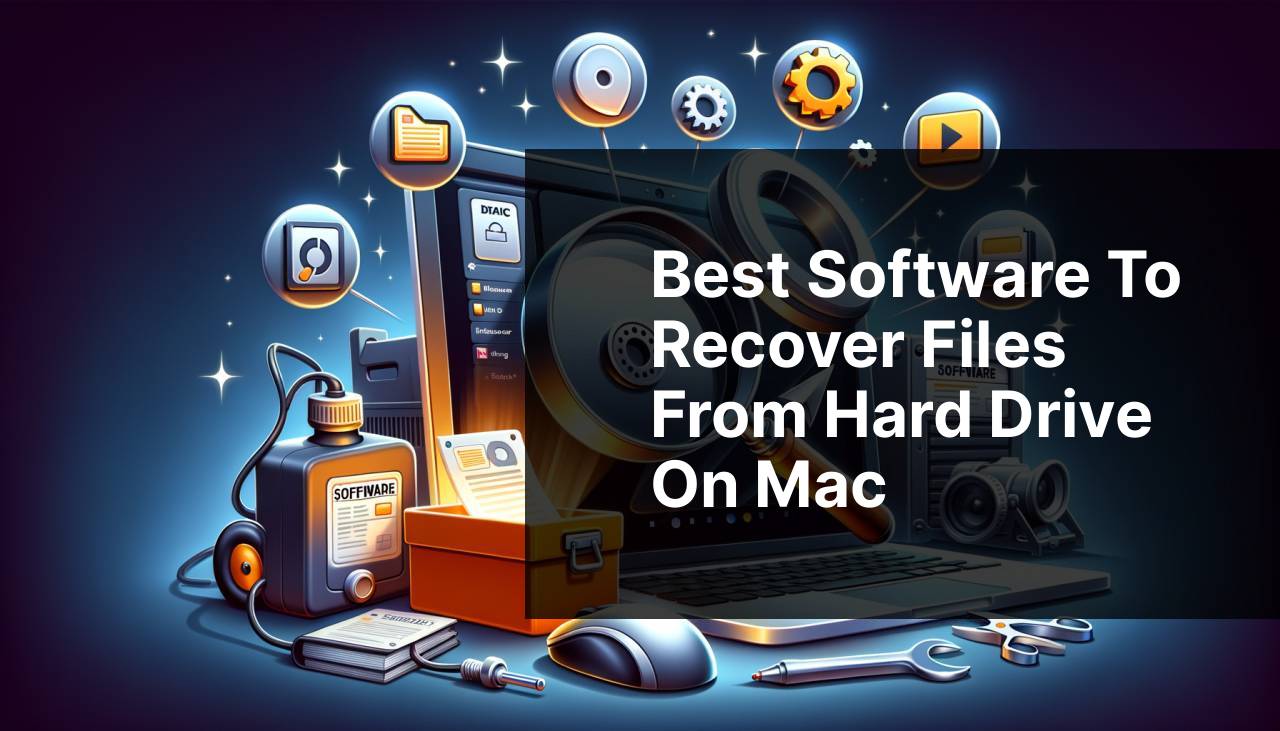
Welcome to this comprehensive guide where we navigate the challenging waters of file recovery on Mac. As someone who has faced the situation of lost data, I understand the panic and the urgency. Through first-hand experience and careful analysis, I’ll share the top software options that can help retrieve your precious files from a hard drive on Mac Finding the best tool is critical, as not all software is created equal and some may do more harm than good. Let’s explore the options, with a focus on ease of use, effectiveness, and risk factors, to ensure you can recover your data safely.
Disk Drill
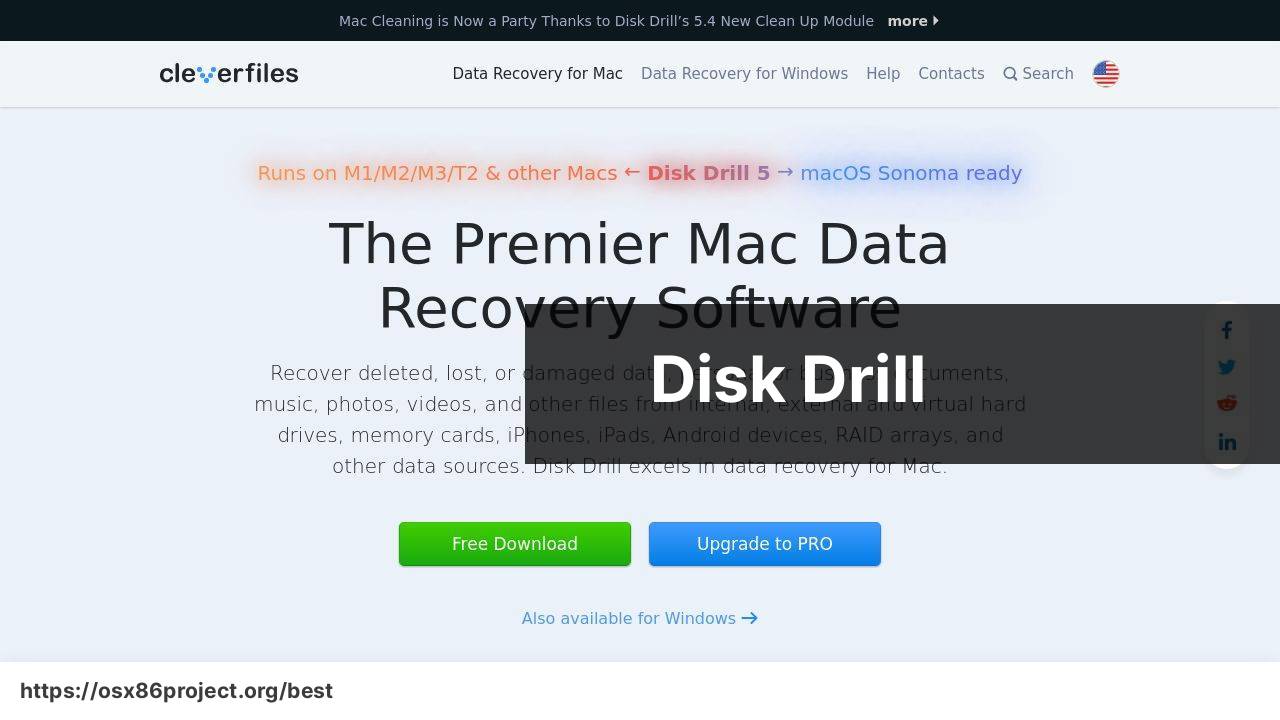
First on the list, and a personal lifesaver, is Disk Drill. This software is robust, user-friendly, and boasts an impressive success rate in retrieving lost data. With an intuitive interface and a plethora of recovery options, Disk Drill stands out as a versatile and reliable solution for Mac users.
Pros
- Comprehensive scanning abilities covering a wide range of file systems
- User-friendly interface suitable for both novices and professionals
Cons
- Limited features in the free version
- Potential complexity with advanced features for casual users
EaseUS Data Recovery Wizard
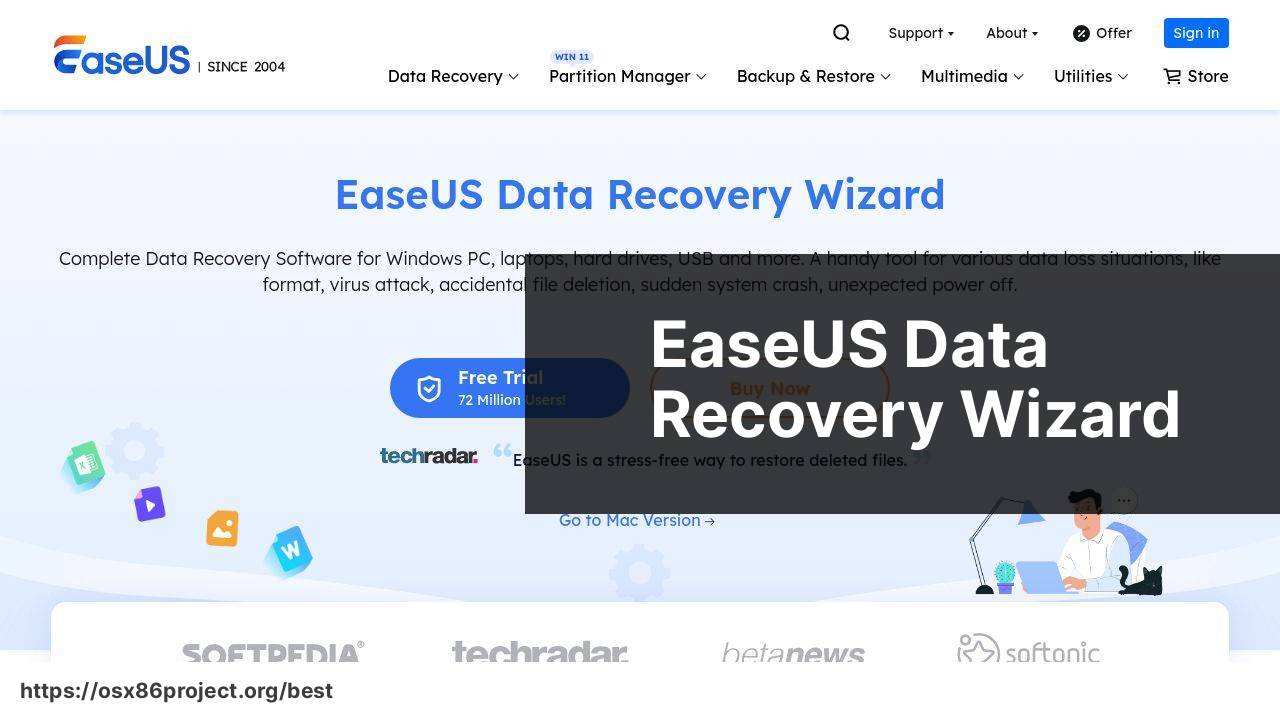
EaseUS Data Recovery Wizard is another strong contender, with its straightforward approach to file recovery on Mac. It has a simple interface and delivers solid performance when it comes to recovering various types of data.
Pros
- Intuitive user experience
- Supports numerous file formats and storage devices
Cons
- Some files may not be recoverable after a scan
- The free version has a data recovery limit
Wondershare Recoverit
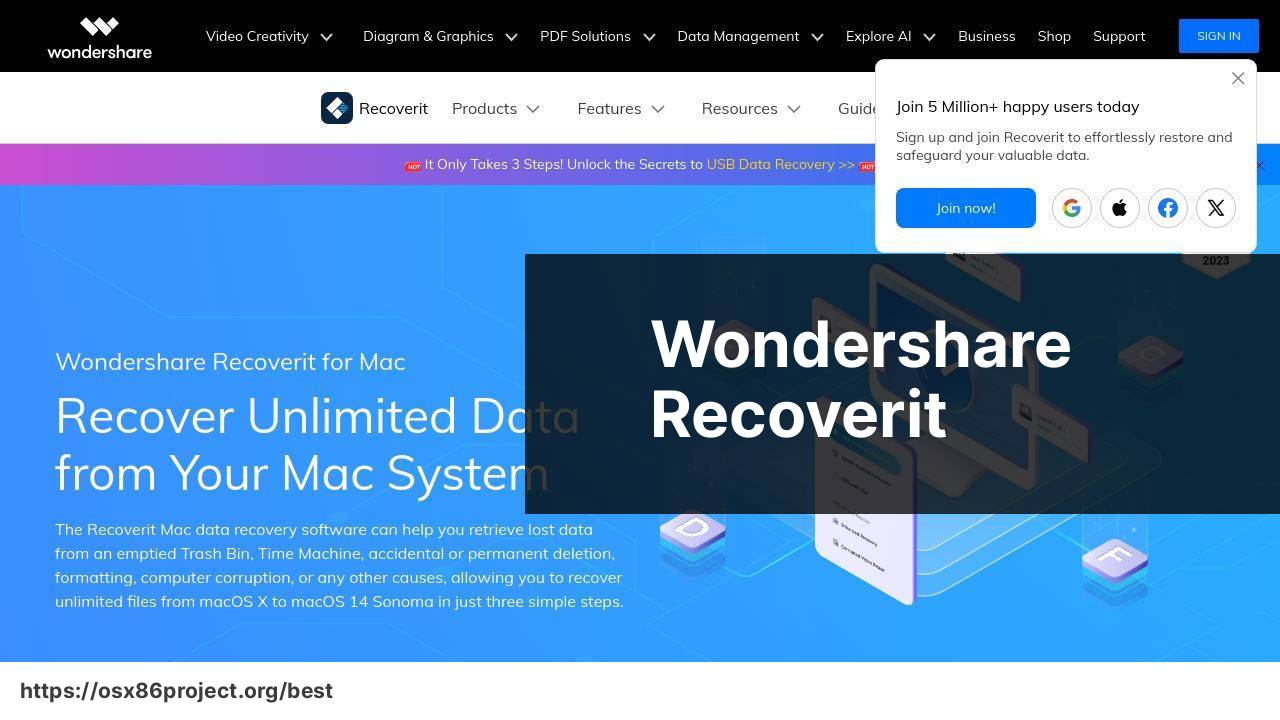
Wondershare Recoverit is known for its high success rates and supports a variety of scenarios, including accidental deletion and formatted drives. Its robust scanning technology digs deep to uncover recoverable data on Mac drives.
Pros
- Diverse file type recovery
- User-friendly, sleek design
Cons
- Recovery speed can be slow with large volumes of data
- Software cost may be a factor for some users
Stellar Data Recovery for Mac
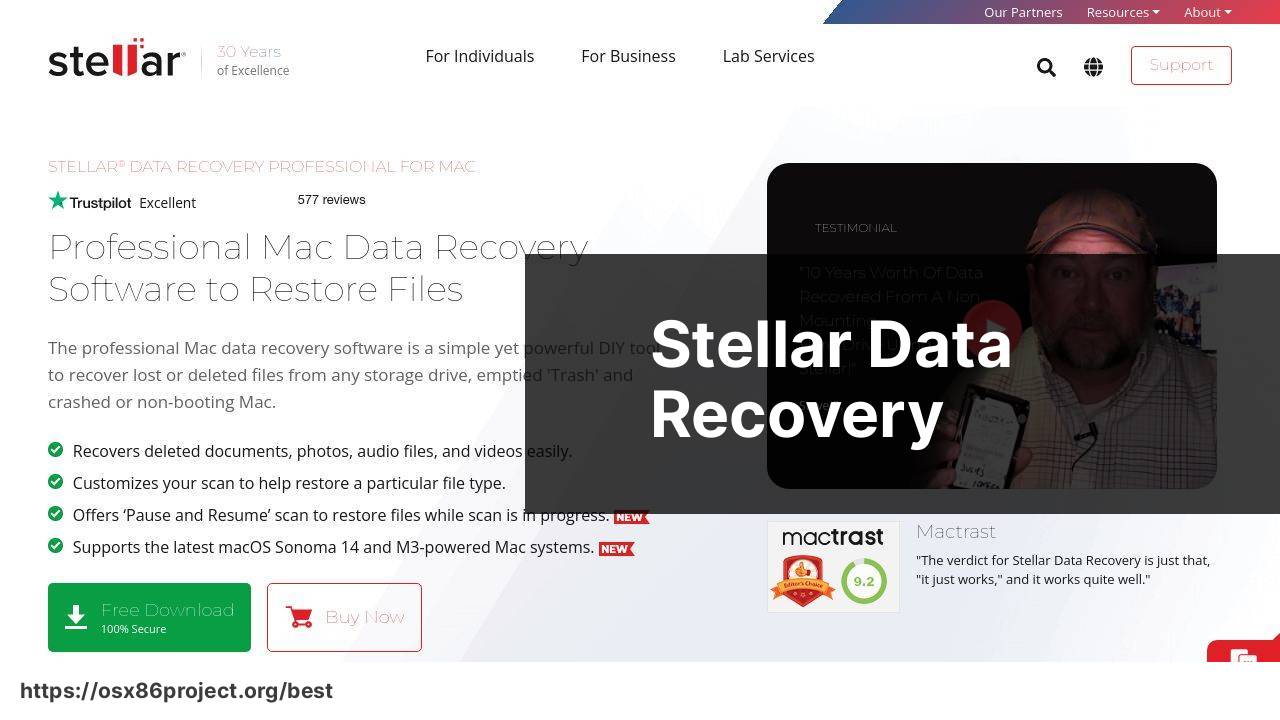
Stellar Data Recovery for Mac is highly regarded for its efficiency and user-centric design. Catering to a wide array of data loss situations, it aims to simplify the recovery process while maintaining professional standards.
Pros
- Offers a powerful scan engine
- Friendly interface with clear instructions
Cons
- Recovery process may be lengthy for deep scans
- Higher price point compared to some competitors
Data Rescue 5 for Mac
Data Rescue 5 for Mac is a specialist tool in the data recovery field and has earned a reputation for its depth of analysis and recovery capabilities. With its focus on being a data recovery specialist, it offers extensive support and resources to its users.
Pros
- Dedicated focus on Mac data recovery
- Professional-grade tool used by IT experts
Cons
- Can be complex for casual users
- In-depth functionality may not be necessary for simple recovery tasks
Youtube video to watch
Conclusion:
As we delve deeper into the topic of data recovery, it’s clear that the process can be fraught with challenges and uncertainties. Each case of data loss is unique, which makes the choice of the right tool paramount. Detailed analysis and reviews from trusted sources like TechRadar and PCMag provide valuable insights into the performance and reliability of data recovery software. It is also helpful to visit forums such as Apple Support Communities to read about real user experiences and practical advice. Being well-informed not only eases the stress of recovery but also helps minimize the risk of further data loss.
Furthermore, it’s essential to recognize the advances in data recovery technologies, which continually enhance the capabilities of software solutions. Innovations in scanning algorithms and recovery techniques mean that what was unrecoverable a few years ago might be salvageable today. Industry leaders such as Ontrack often push the boundaries of what’s possible in data recovery.
The importance of data security practices cannot be overstated, as a proactive approach to data management can significantly reduce the need for recovery solutions. Resources such as Federal Trade Commission offer guidelines on data backup and protection, emphasizing the need for regular system backups and use of encryption to safeguard sensitive information.
FAQ
What features should I look for in Mac hard drive recovery software?
Key features to look for include support for multiple file systems, deep scan capabilities, file preview before recovery, and a user-friendly interface.
Is it possible to recover permanently deleted files on a Mac?
Yes, using data recovery software for Mac, you can often restore files that were deleted, even if they have been removed from the Trash.
Can these software recover data from an external hard drive connected to a Mac?
Yes, most Mac file recovery software can retrieve data from internal as well as external hard drives that are Mac-compatible.
What are some reputable Mac hard drive recovery software options available?
Reputable options include Disk Drill and EaseUS Data Recovery Wizard, which are known for their efficiency and user-friendly interfaces. Visit Disk Drill and EaseUS.
How does file recovery software work on a Mac?
Recovery software scans your hard drive for retrievable data, identifies recoverable files, and allows you to select which ones to restore.
Will using a recovery tool affect my Mac in any adverse way?
Using a reputable recovery tool designed for Mac should not negatively impact your system if used correctly and according to the instructions.
Is it necessary to have technical knowledge to use Mac recovery software?
Not necessarily. Many recovery tools for Mac are designed with a straightforward interface so that even novices can navigate the recovery process.
Can I preview files before completing the recovery process?
Yes, most hard drive recovery software for Mac features an option to preview files to ensure you’re recovering the correct data.
What file systems on Mac are typically supported by recovery software?
Most Mac recovery software supports common file systems like HFS, HFS+, APFS, FAT32, and exFAT.
Is there a chance of recovering overwritten files on Mac?
The chances of recovering overwritten files are slim since new data can permanently erase the old data, making it unrecoverable.
 Best MacOS Apps / Software
Best MacOS Apps / Software
